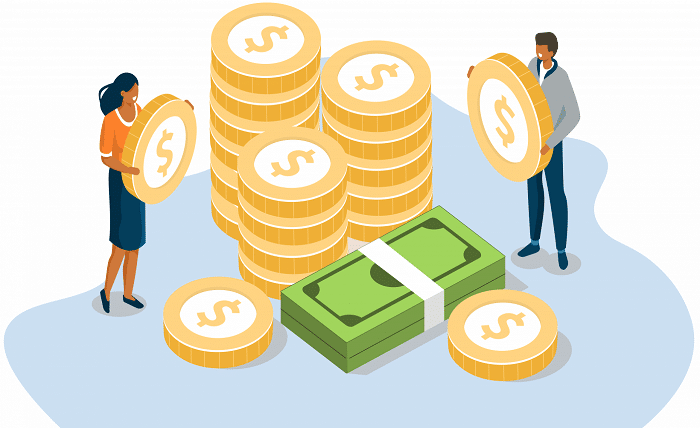Everything You Need to Know About Savings Accounts

Savings accounts are the cornerstone of personal finance, offering a safe and reliable way to store your money while earning interest. Whether you’re saving for a big purchase, an emergency fund, or simply building financial discipline, a savings account is essential. This guide explores the types of savings accounts, their features, and tips to maximize your savings potential. By understanding savings accounts, you can make informed financial decisions that align with your goals.
What Are Savings Accounts?
Savings accounts are financial products offered by banks and credit unions that allow individuals to deposit money securely while earning interest. Unlike checking accounts, which are designed for frequent transactions, savings accounts encourage long-term saving. They offer a higher level of security, liquidity, and convenience compared to other investment options.
Most savings accounts require a minimum balance and have limited transaction allowances. By choosing a savings account, you can grow your funds steadily without taking significant risks.
Types of Savings Accounts
Savings accounts come in various forms, each designed to meet specific needs. Here are the most common types:
- Traditional Savings Accounts: Offer modest interest rates and easy access to funds.
- High-Yield Savings Accounts: Provide higher interest rates but often require higher minimum balances.
- Money Market Accounts: Combine the features of savings and checking accounts, offering better returns but with more restrictions.
- Certificates of Deposit (CDs): Lock funds for a fixed period in exchange for higher interest rates.
- Specialized Savings Accounts: Tailored for specific goals, like education or retirement savings.
Understanding these options helps you select a savings account that best fits your financial strategy.
Benefits of Savings Accounts
Savings accounts offer a range of benefits that make them a vital tool for personal financial planning. Here are some key advantages:
- Safety: Funds in savings accounts are insured by agencies like FDIC or NCUA, protecting your money up to a certain limit.
- Liquidity: Easily access your funds through ATMs, online transfers, or in-person banking.
- Interest Earnings: Savings accounts generate passive income through interest.
- Budgeting Assistance: Separate your savings from everyday expenses, helping you achieve financial goals.
- Emergency Funds: Serve as a safety net for unforeseen expenses.
By leveraging these benefits, you can use a savings account to build a secure financial future.
How to Choose the Best Savings Account
Selecting the right savings account involves evaluating several factors to ensure it aligns with your financial goals. Consider the following:
- Interest Rates: Compare rates to maximize earnings.
- Minimum Balance Requirements: Choose accounts with balances you can maintain comfortably.
- Fees and Charges: Avoid accounts with excessive fees.
- Accessibility: Look for online and mobile banking options.
- Additional Perks: Some accounts offer cashback or rewards for meeting certain criteria.
By researching and comparing options, you can find a savings account that offers the best balance of benefits and convenience.
Tips to Maximize Your Savings
Maximizing the potential of your savings account requires strategic planning. Here are practical tips to get the most from your savings:
- Automate Savings: Set up automatic transfers to ensure consistent saving.
- Opt for High-Yield Accounts: Earn more by choosing accounts with competitive interest rates.
- Avoid Frequent Withdrawals: Limit transactions to avoid penalties and maintain growth.
- Use Multiple Accounts: Separate funds for different goals, such as emergencies and vacations.
- Take Advantage of Promotions: Look for introductory offers or bonuses from banks.
Applying these strategies helps you optimize your savings account for long-term growth.
Common Fees Associated with Savings Accounts
While savings accounts are generally low-cost, some fees can affect your earnings. These include:
- Monthly Maintenance Fees: Charged for account maintenance if balance requirements aren’t met.
- Excess Withdrawal Fees: Applied when you exceed transaction limits.
- ATM Fees: Imposed for using out-of-network ATMs.
- Paper Statement Fees: Charged for receiving physical statements instead of digital ones.
Being aware of these fees allows you to avoid unnecessary charges and maintain the value of your savings account.
The Future of Savings Accounts in the Digital Age
The rise of digital banking has transformed how savings accounts operate. Today’s accounts often feature:
- Online and Mobile Banking: Manage your account anytime, anywhere.
- Instant Transfers: Move funds between accounts seamlessly.
- Enhanced Security: Advanced encryption and fraud protection.
- Personalized Insights: Use apps to track and improve your savings habits.
- AI-Powered Recommendations: Get advice on optimizing your finances.
As technology advances, savings accounts continue to offer greater convenience and flexibility for modern banking needs.
Conclusion
Savings accounts are more than just a place to store money; they are essential tools for financial stability and growth. By understanding the types, benefits, and strategies for managing savings accounts, you can make informed decisions that support your goals. Whether you’re just starting your financial journey or looking to optimize your savings strategy, a well-chosen savings account is your partner in achieving financial success.
FAQs
1. What is the primary purpose of a savings account?
The primary purpose is to provide a secure place for storing money while earning interest, helping individuals save for future goals or emergencies.
2. Can I withdraw money from my savings account anytime?
Yes, but most savings accounts limit the number of monthly withdrawals to encourage saving and may charge fees for excess transactions.
3. How do high-yield savings accounts differ from traditional ones?
High-yield accounts offer higher interest rates but often require larger minimum balances or have additional restrictions.
4. Are online savings accounts safe?
Yes, as long as the bank is FDIC-insured, your funds are protected up to the insured limit.
5. What factors should I consider before opening a savings account?
Look for competitive interest rates, low fees, easy accessibility, and account features that align with your financial needs.




